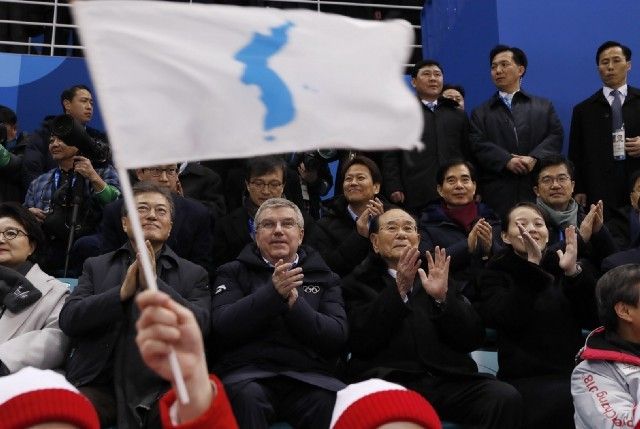Lots of swooning coverage of the Olympics this week. A heartwarming story of how humanity’s shared love of sport can transcend geopolitical differences on the Korean peninsula, and so on. Call me a curmudgeon (I’ve been called worse), but I’m not buying it.
Even if there is some warming of North-South ties, it’s hard to see how that will loosen the basic, intractable deadlock over North Korea’s nuclear program.To review, Kim Jong-un’s primary motivation for having nuclear weapons, as best we can tell (and we could be wrong, but do tell us why) is to deter the US from ever attempting “regime change” in the North. Saddam Hussein and Muammar Qaddafi haunt Kim’s dreams, if he has dreams.
That won’t have changed after the Games. In fact, none of the following will have changed:
- Kim will still want a nuclear-tipped ICBM that can hit Washington, and is racing like hell to get one he can test.
- The US will still be sworn to stop him, but tighter sanctions still won’t be enough to make Kim cry uncle (he kills uncles, actually).
- An increasingly exasperated China still won’t fully choke Kim out, because doing so might cause his regime to collapse, inviting chaos on the peninsula.
- And as Willis told you, the option of a US limited military strike against the North is probably a horrible idea.
Gold medal for anyone who can tell us how this ends other than: Kim gets his bomb, and the world learns, uneasily, to live with it — but how long can North Korea last after that?
